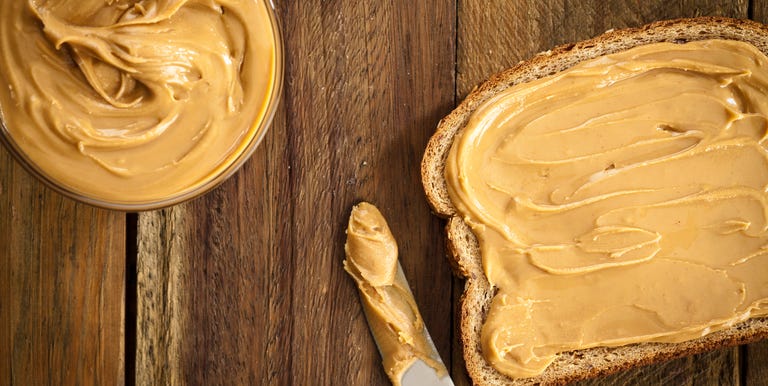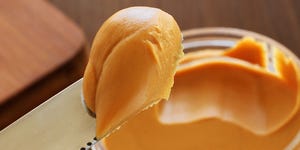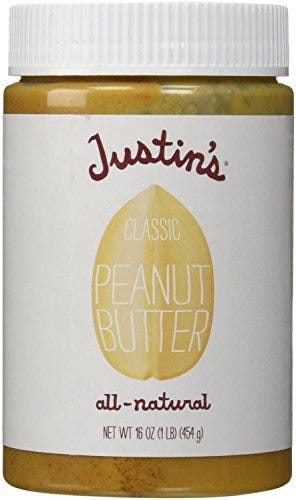
Peanut butter is one of those things that basically everyone has at their house. And for good reason: It’s delicious, it goes with literally everything (even carrots, I swear!), and it lasts forever.
But if you eat PB every freaking day (ahem, me)…is this too much of a good thing? After all, it has a sh*t ton of fat and calories.
Peanut butter nutrition can be misleading
The immediate, obvious downside of peanut butter: that calorie and fat content. Check the stats for a serving of two-tablespoons of unsalted peanut butter:
The peanut butter health benefits are real though
Still, don’t let that calorie count put you off. “Nuts and nut butter, including peanut butter, used to get a bad rap because we were so fat-phobic for years,” says Bonnie Taub-Dix, R.D.N., creator of BetterThanDieting.com and author of Read It Before You Eat It: Taking You from Label to Table.
But fat in your food is not the enemy, especially when it comes to PB, says Taub-Dix. “Actually, it could keep you more satiated and stop you from snacking on worse things.” The high serving of protein also helps in the fullness department.
Try to stick to the two-tablespoon portion size, though, so you don’t skyrocket your daily calorie count. (Sometimes you probably won’t even need that much if you’re just spreading some on a slice of toast, she says.)

In terms of your overall health, studies link nuts to lower cholesterol levels, particularly LDL (or the “bad” cholesterol). Peanuts have also been shown to improve heart health and may level off blood sugar levels by helping the body absorb carbs more slowly—an important advantage for those with diabetes. What’s more, eating nuts like peanuts can actually help people maintain weight loss over time and control their hunger and appetite.
And while peanuts are on the no-no list for people on the paleo diet and Whole30 because of their alleged inflammatory properties, Taub-Dix says you shouldn’t necessarily be concerned. “I don’t think [peanut butter is] anything that should be avoided,” she says.
What to look for in a healthy peanut butter

That said, a lot of peanut butters can run high in sugar, sodium, or additives, so Taub-Dix recommends checking the ingredients list as well as the nutrition label. Ideally, Taub-Dix says, a healthy peanut butter should be made with just peanuts, but the smaller the ingredient list is, the better—to ensure you’re not adding on too many calories or fat to a food that’s naturally high in both.
Though lots of labels tout “natural,” you still want to check the ingredients, Taub-Dix says. Salt and sugar could both fit the “natural” bill, but you still don’t necessarily want them in your spread.
The bottom line: Eat up—provided that your PB doesn’t have added sugars. Taub-Dix says she eats nut butter every day and suggests just going for it.
Source: Read Full Article